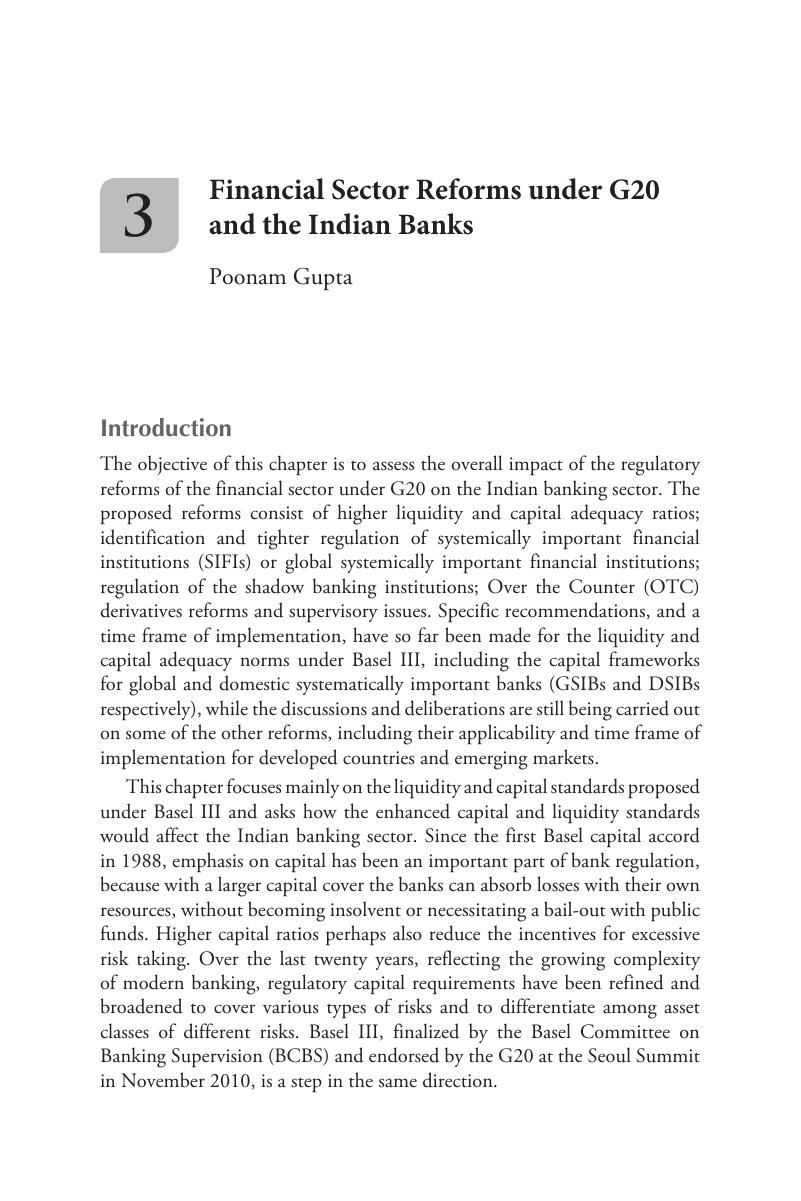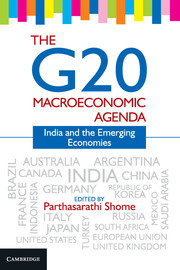Book contents
- The G20 Macroeconomic Agenda
- Copyright page
- Contents
- List of Tables and Figures
- Preface
- Section 1 Introduction
- Section 2 Financial Sector Reforms and Regulation
- 2 Financial Regulation and the G20: Options for India
- 3 Financial Sector Reforms under G20 and the Indian Banks
- Section 3 Global Macroeconomic Coordination and Reforming International Financial Institutions
- Contributors
- Index
- References
3 - Financial Sector Reforms under G20 and the Indian Banks
from Section 2 - Financial Sector Reforms and Regulation
Published online by Cambridge University Press: 05 July 2014
- The G20 Macroeconomic Agenda
- Copyright page
- Contents
- List of Tables and Figures
- Preface
- Section 1 Introduction
- Section 2 Financial Sector Reforms and Regulation
- 2 Financial Regulation and the G20: Options for India
- 3 Financial Sector Reforms under G20 and the Indian Banks
- Section 3 Global Macroeconomic Coordination and Reforming International Financial Institutions
- Contributors
- Index
- References
Summary

- Type
- Chapter
- Information
- The G20 Macroeconomic AgendaIndia and the Emerging Economies, pp. 57 - 90Publisher: Cambridge University PressPrint publication year: 2014

